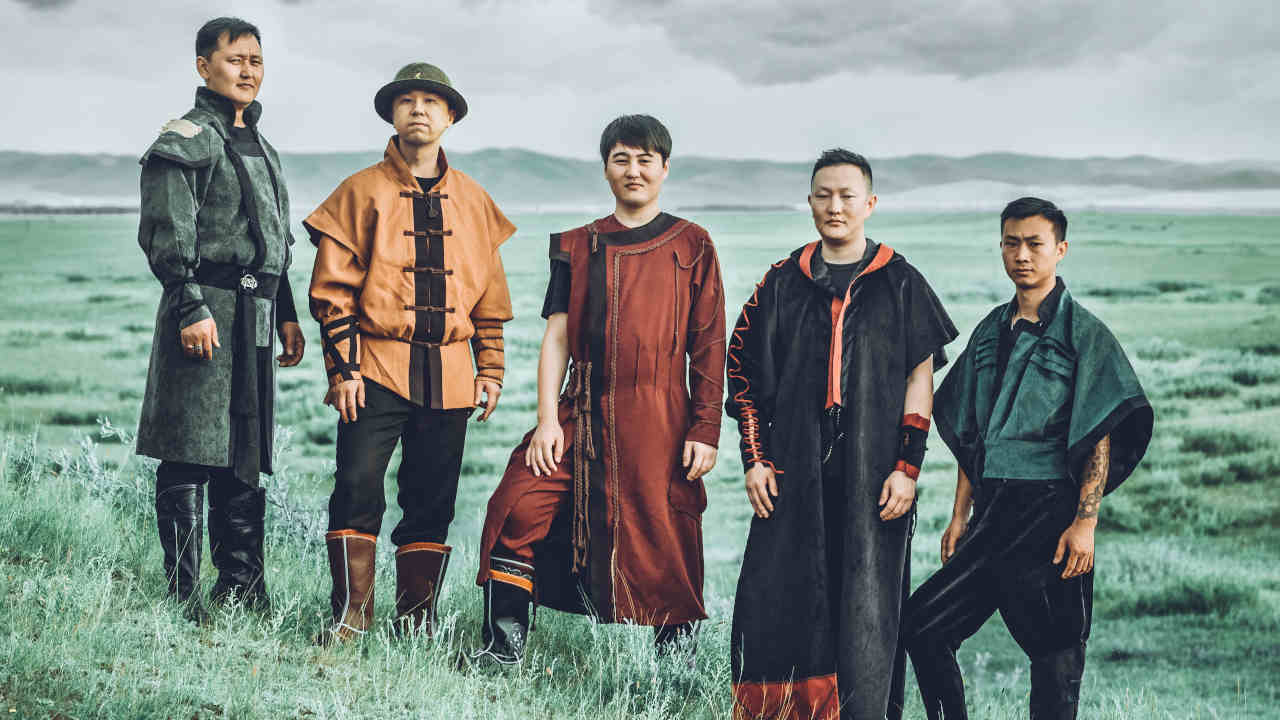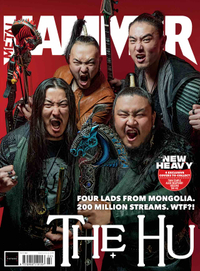
Hurd (Хурд)
Formed in 1987, Hurd (meaning “speed”) are considered the first band to introduce heavy metal into the Mongolian music scene. Their style is a mix of classic metal and soft rock balladry, though as their career has progresed, they have touched on nu metal (with 2001’s Myangan Jild Gants) and industrial (2005’s Züirlekh Argagüi). With their themes of national pride, they’re popular with people in rural areas of Mongolia and Inner Mongolia.
Altan Urag (Алтан Ураг)
Altan Urag (meaning "Golden Lineage") have been around since 2002. Their sound is decidedly more experimental than many of their peers, mixing motor-mouthed Mongolian throat singing and a rock rhythm section with quasi-orchestral overlays that make each song feel like an ancient myth come to life. It’s a formula that has seen the band soundtracking big name film and TV shows such as the Netflix TV series Marco Polo, the 2006 film Khadak and 2007 Genghis Khan blockbuster Mongol.
Nine Treasures (九宝)
One of China’s national treasures, Nine Treasures fusion of galloping modern metal and gang-chanted, throat-sung choruses are exhilarating and evocative – their song Wisdom Eyes is the equivalent of riding through lush Inner Mongolia on horseback. Their music travels well too - the band turned Poland’s Woodstock festival into a giant Mongolian dance party when they played there in 2017. A brand new best-of, Awakening From Dukkha, is due in March.
Tengger Cavalry
Before The Hu broke worldwide, Tengger Cavalry were the area’s best-known band. Originally from Inner Mongolia before relocating to the US, they channelled the traditional folk forms of their homeland into a western context – even singing in English on songs such as Cavalry In Thousands. Appearances on soundtracks for video games Civilisation 6 and Doom Eternal helped raise their profile, though their rise was tragically curtailed by the death of mainman Nature Ganganbaigal in 2019.
Ego Fall (吹响号角)
Hailing from Hulunbuir, Inner Mongolia, Ego Fall mash the music of their homeland with metalcore and electronic elements. The Mandarin name of the band, Dian Fu M, means to subvert oneself, but their album titles communicate what Ego Fall are really about - Spirit of Mongolia and Inner M. They’ve previously opened for Slipknot in Taiwan, as well as toured Europe and Japan.
Hanggai (杭盖乐队)
Beijing-based Hanggai specialize in Mongolian folk rock which pivots towards leather-clad arena rock in songs like The Rising Sun and introspective balladry on Xiger Xiger. ‘Hanggai’ is a Mongolian word referring to sprawling grasslands, mountains, rivers, trees, and blue skies, and while Mongolia tself is hundreds of kilometers away from Beijing, Hanggai keeps its spirit omnipresent through music. Frontman Ilchi has stated “Hanggai's music doesn't really speak of Genghis Khan's time, but it does reflect the life and ethics of the Mongolian people.”

You can read more about Mongolia’s favourite sons The Hu exclusively in the brand new issue of Metal Hammer – out now.


